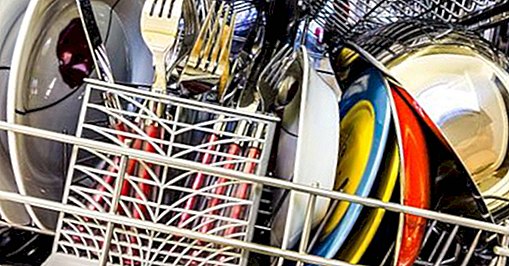With this dishwasher error you are wasting money!

Is that familiar to you? You have eaten, clears the table, carries the plates in the kitchen. Then you turn on the faucet, quickly rinse the plates, place them in the dishwasher, put the dishes in the basket, put the glasses up, tab into the machine - done! Was that right?
No! Once again, we've made a mistake that happens to a surprising number of people - simply because they do not know any better. Because: "rinsing" the plates after eating is not only unnecessary - it even harms the environment and costs money!
As? What? How come? Sure, that at first seems contradictory, after all, we wash the plates off so that the machine later has less work, right?
That's why you should not pre-rinse dishes
That is well thought - but unfortunately wrong! At least if you do not have a very old dishwasher. Modern machines (from 2010 onwards) automatically measure how dirty the dishes are. They scan how dirty and greasy the water is in the machine and adjust the flushing power accordingly.
Means: If we pre-rinse our plates, the dishwasher "thinks" they are cleaner than they are and flushes. Hygienically clean, the result is then usually not at the end - and by pre-rinsing by hand, we have also wasted hot water and maybe even detergent!
What should I do instead?
If your dishwasher also has a built-in dirt sensor (to find out, it helps to look into the manual), you can save the rinse before rinsing in the future.
Of course, you should still remove coarse food scraps from the plate, so they do not clog the sieve: Simply pushing it with the knife from the plate is quite enough. You simply leave the actual rinsing work to your machine - that's what you bought it for, did not you?










